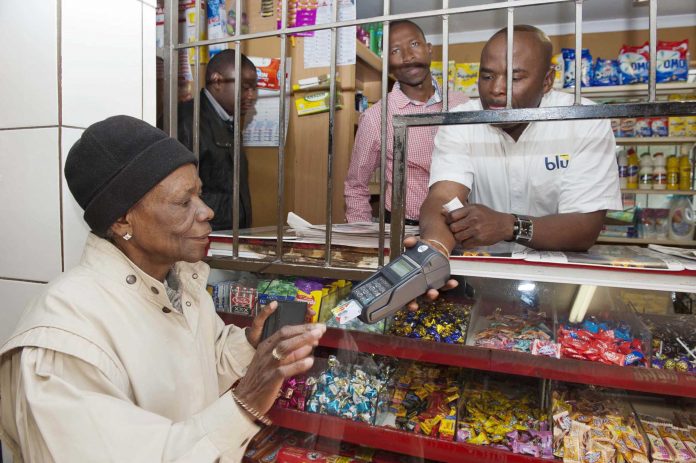U.S. credit card giant MasterCard Worldwide and The MasterCard Foundation took new steps this month to deepen the brand’s expansion into Africa, respectively launching a financial services initiative for people living “in or near poverty” and committing millions of dollars to university scholarships for “talented, yet economically disadvantaged, young people.”
The steps come amid see-sawing use of credit cards in the United States, as consumers try to rein in debt amid stagnant wages and an economy still grappling with fallout from the 2008-2009 financial crisis, the worst since the Great Depression of the 1930s.
These steps follow the roll out in September of a controversial MasterCard-branded Nigerian national identity smart card with electronic payment capability. Nigerians can use the card to deposit funds, receive social benefits, pay for goods and withdraw cash at any of the 35 million MasterCard acceptance locations globally, withdraw cash from all ATMs that accept MasterCard, or engage in many other financial transactions that are facilitated by electronic payments.
MasterCard said it was the largest roll out of a formal electronic payment solution in Nigeria and the broadest financial inclusion initiative of its kind on the African continent. Only about 30 percent of Nigeria’s 170 million citizens have a bank account.
MasterCard has long viewed Africa as the place to make its dream of cashless societies come true. It currently operates in 48 of the 55 countries on the continent, but with 85 percent of retail transactions on the continent still conducted in cash, that dream is a long way from reality.
“When MasterCard wanted to champion another frontier in electronic payments, we came to Africa,” Ajay Banga, MasterCard Worldwide’s president and CEO, told officials at Nigeria’s Central Bank during a weeklong trip across Africa in January 2013.
“Public dialogue about the costs of cash and the benefits of electronic payments, partnerships that bring that dialogue to fruition through shared value, and outcomes that foster greater financial empowerment…, these are the points on our compass, guiding us toward what we believe is a better, newer world…a world that’s resetting what is possible in places like Africa and countries like Nigeria…a world beyond cash,” he added.
On December 3, MasterCard unveiled MasterCard Labs for Financial Inclusion in Nairobi, Kenya, to develop “practical and cost-effective financial tools that expand access and help build stable futures over the long term” for some 100 million people across East Africa. With an $11 million, three-year grant from the Bill & Melinda Gates Foundation, the lab is expected to generate new ideas with local entrepreneurs, governments and other stakeholders in the region and rapidly move from concept to reality.
It is the first MasterCard Lab located in Africa and the first to focus exclusively on what MasterCard calls “financial inclusion.”
Also on December 3, The MasterCard Foundation announced a commitment of $86.6 million through its Scholars Program for poor but talented young Africans to study at universities in Ghana, South Africa and Uganda, beginning in early 2015.
The new commitment adds Kwame Nkrumah University of Science and Technology (Ghana), the University of Pretoria and the University of Cape Town (South Africa) and Makerere University (Uganda) to the global network of partners in the Scholars Program, including Ashesi University College in Ghana, the first African University to sign on to the program.
Launched in 2012, the ten-year, $500 million Scholars Program aims to inspire young Africans to lead change through education.
“Africa has immense strategic importance to MasterCard,” says Michael Miebach, Middle East and Africa president at MasterCard. “We will continue to invest in infrastructure, people and know-how in this part of the world. This has been the fastest growing area for MasterCard for the past few years, and we expect it to continue to register high growth.”













